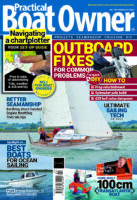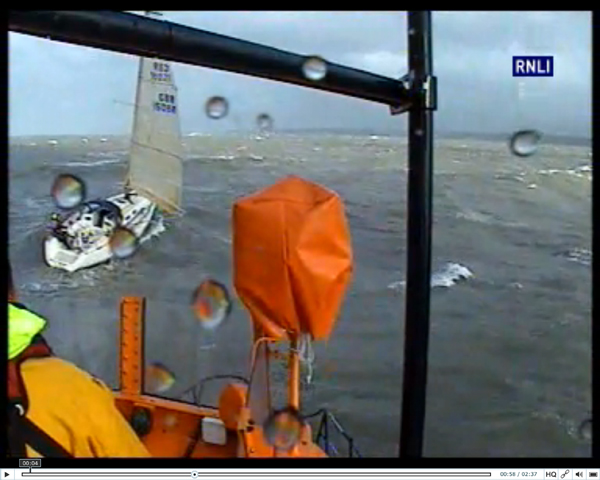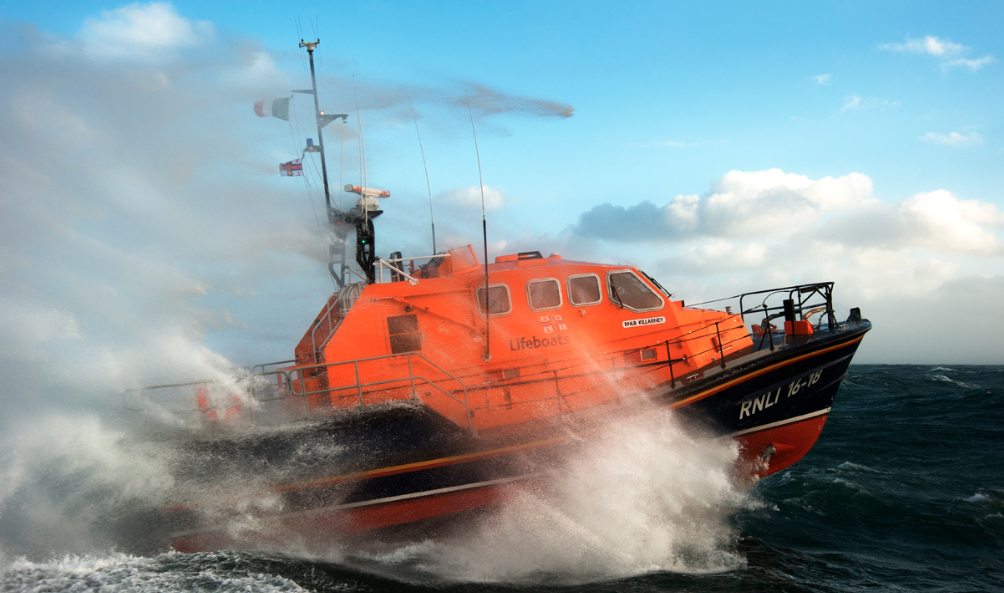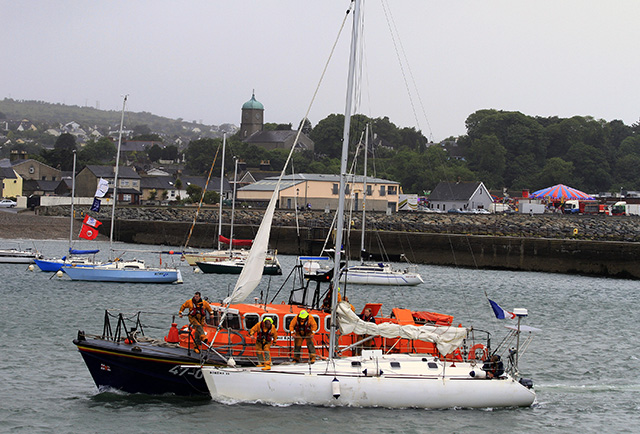A small yacht without lights, VHF radio, GPS or flares was rescued by Scarborough RNLI after suffering engine failure in the middle of the night.
Lifeboat press officer Dave Barry said: ‘The skipper of the aptly named Don’t Panic was fortunate that his phone battery wasn’t dead and that he could get a signal.
‘Otherwise the offshore wind could have blown him into the shipping lane, where he would have been in grave danger.’
The skipper of Don’t Panic called the coastguard via 999, estimating that he was a quarter of a mile offshore when he got into difficulties; the boat’s engine had a mechanical failure.
The lifeboat launched at 1.02am yesterday, 28 June, and quickly located the yacht by radar, a mile and a half east of the harbour, homing in with the help of the light on the skipper’s phone.
The lifeboat, with a crew of six, towed the yacht into the harbour.

Credit: Dave Barry/Scarborough RNLI
Safety warning
John Senior, lifeboat operations manager, said: ‘It is imperative that any leisure craft putting out to sea should have a fully functional VHF marine radio and flares as a bare minimum.
‘There is no legal requirement for leisure craft but we would strongly advise that such vessels always have a means of sending out a distress call other than a mobile phone, which should be used only as a back-up.
‘We also recommend that if you are going at night or dusk, you have lights and have informed someone ashore of your intentions.’

Credit: Dave Barry/Scarborough RNLI
- If you see anyone injured or in distress on the coast, dial 999 and ask for the coastguard.
Safety warning after woman falls from yacht
Lifejacket aids successful rescue in South Wales
Safety warning after drama in rough seas
Christmas morning call out for Hastings RNLI lifeboats' volunteers
Throw Bag safety warning to yachtsmen
Yak throw lines may have rope fault - simple to check
Anchor light and emergency VHF antenna
Paul Newton mounts an anchor light and emergency VHF antenna on his pushpit
Cobra HH350 floating handheld VHF radio
We tested the waterproof, floating Cobra HH350 over the course of a few months - find out our thoughts
Testing times on the Atlantic Rally for Cruisers (ARC)
Laura Hodgetts talks to the skippers of 20 boats on the Atlantic Rally for Cruisers (ARC), ‘the biggest downwind gear…
VHF essentials: How to solder a PL259 plug to a VHF cable
Connecting a PL259 plug to a VHF aerial cable - step by step
How to test an old VHF antenna and cable
A reader's question about testing a VHF antenna and coaxial cable answered by one of PBO's experts
VHF DSC radio – advice for PBO readers from the MCA
Good communications save lives at sea
VHF issues? Probably the wiring…
You can often buy replacement parts
Lone sailor rescued after distress call
A single-handed French sailor was rescued six miles off the Wicklow coast after making a distress call.
Nav in a nutshell: Electronic charts
Dick Everitt assesses the differences between raster and vector charts when deciding on which chart plotter to buy
















